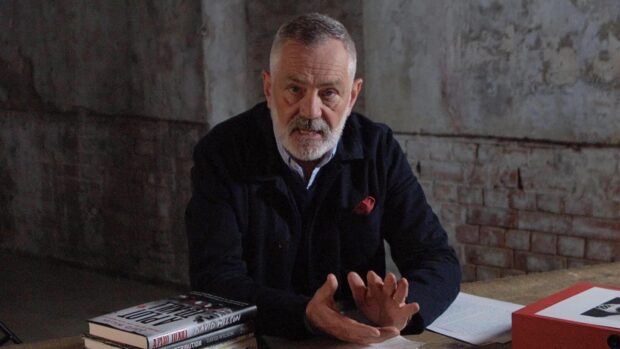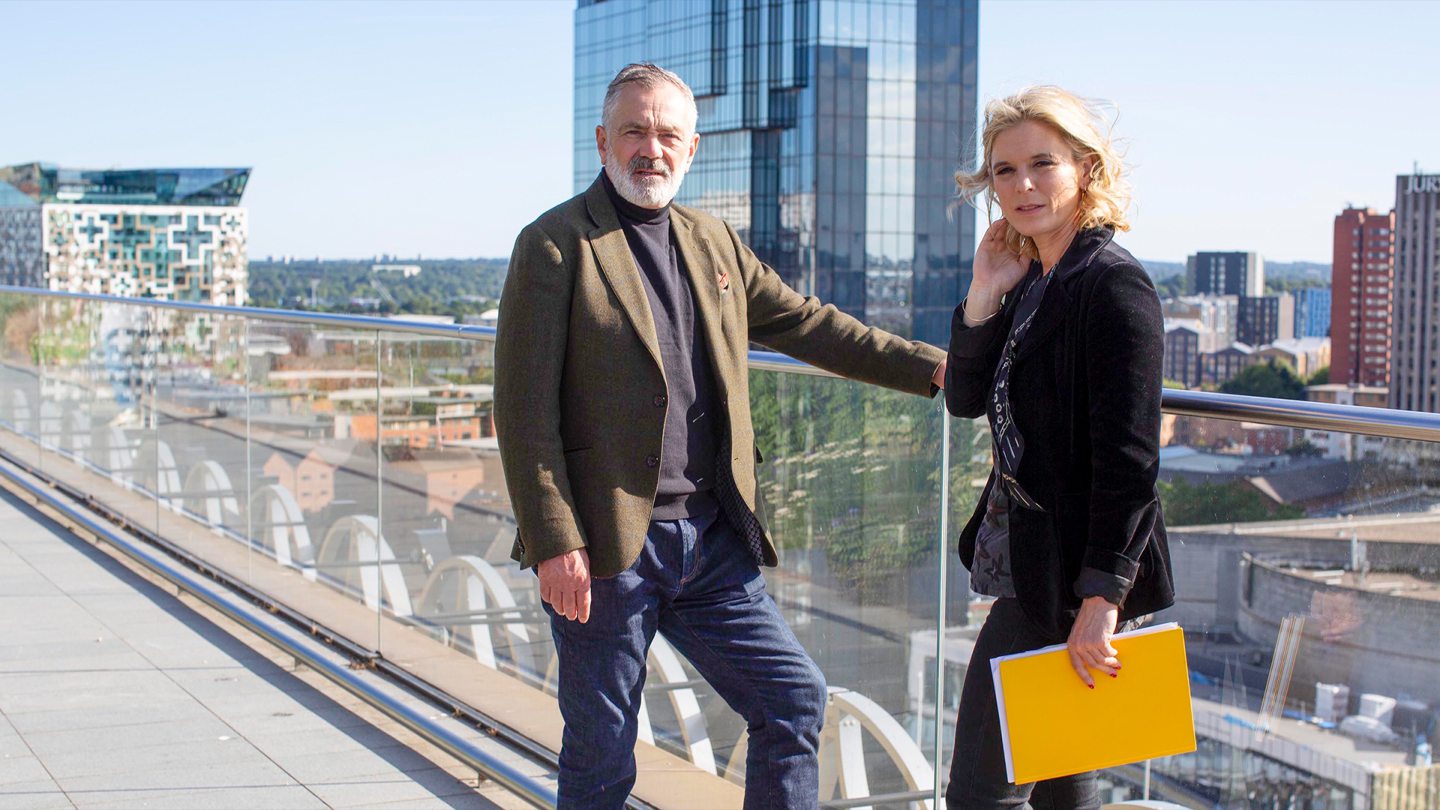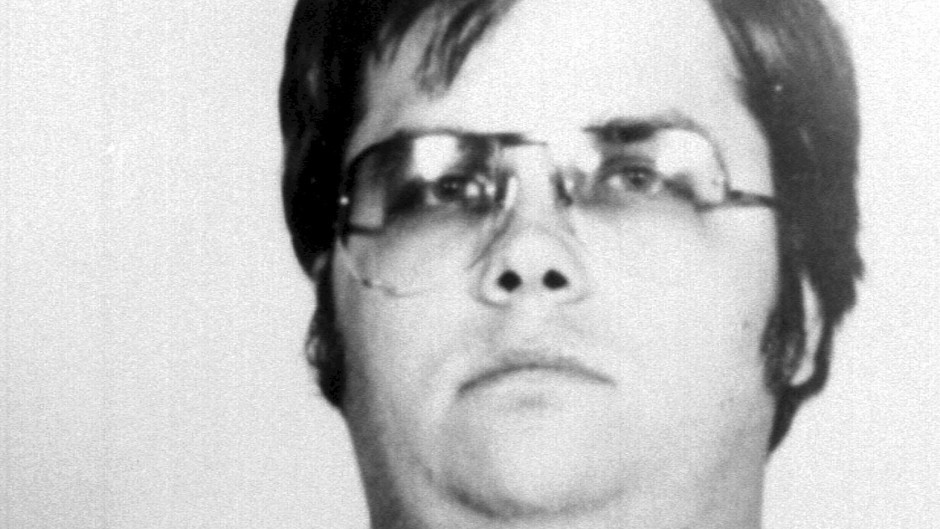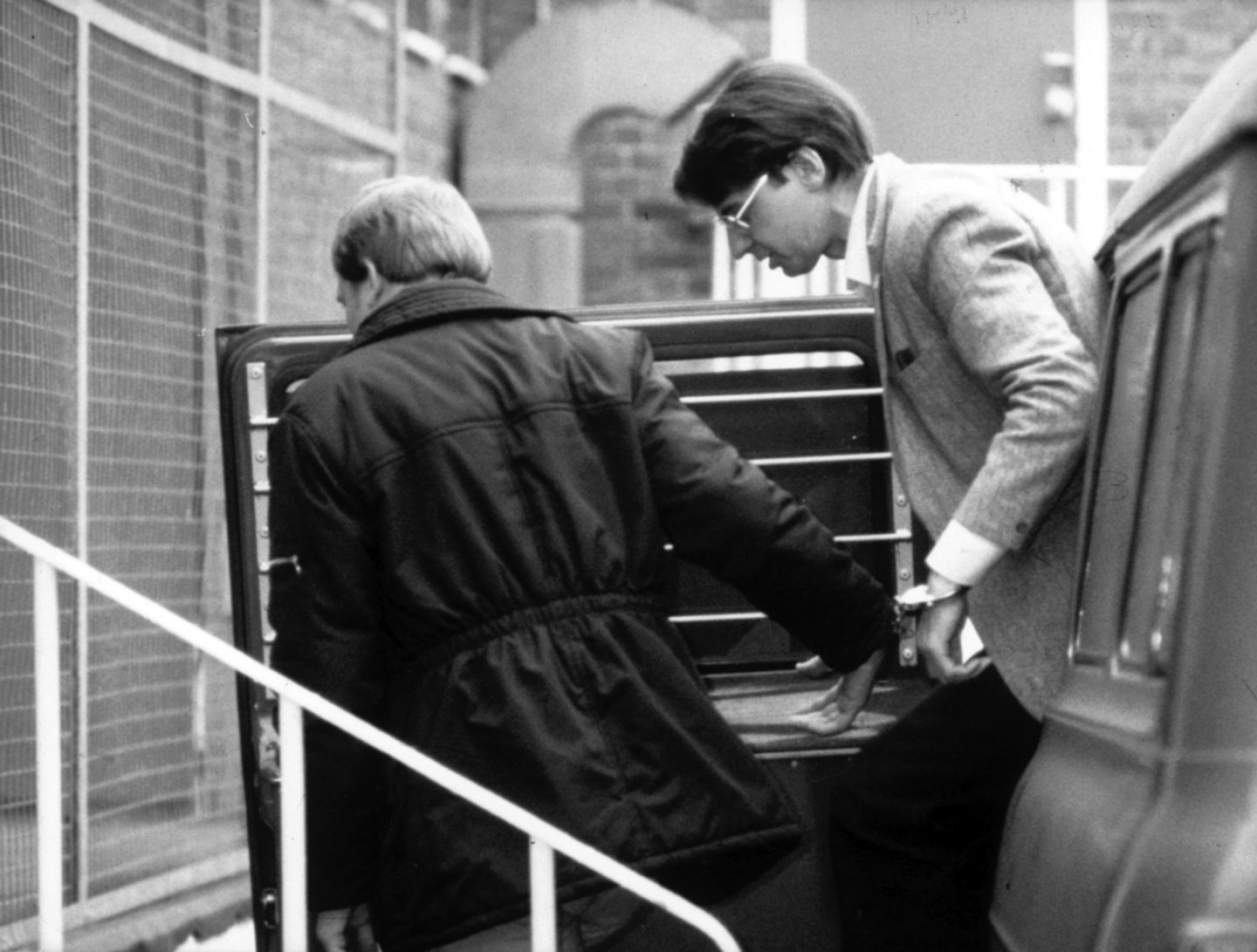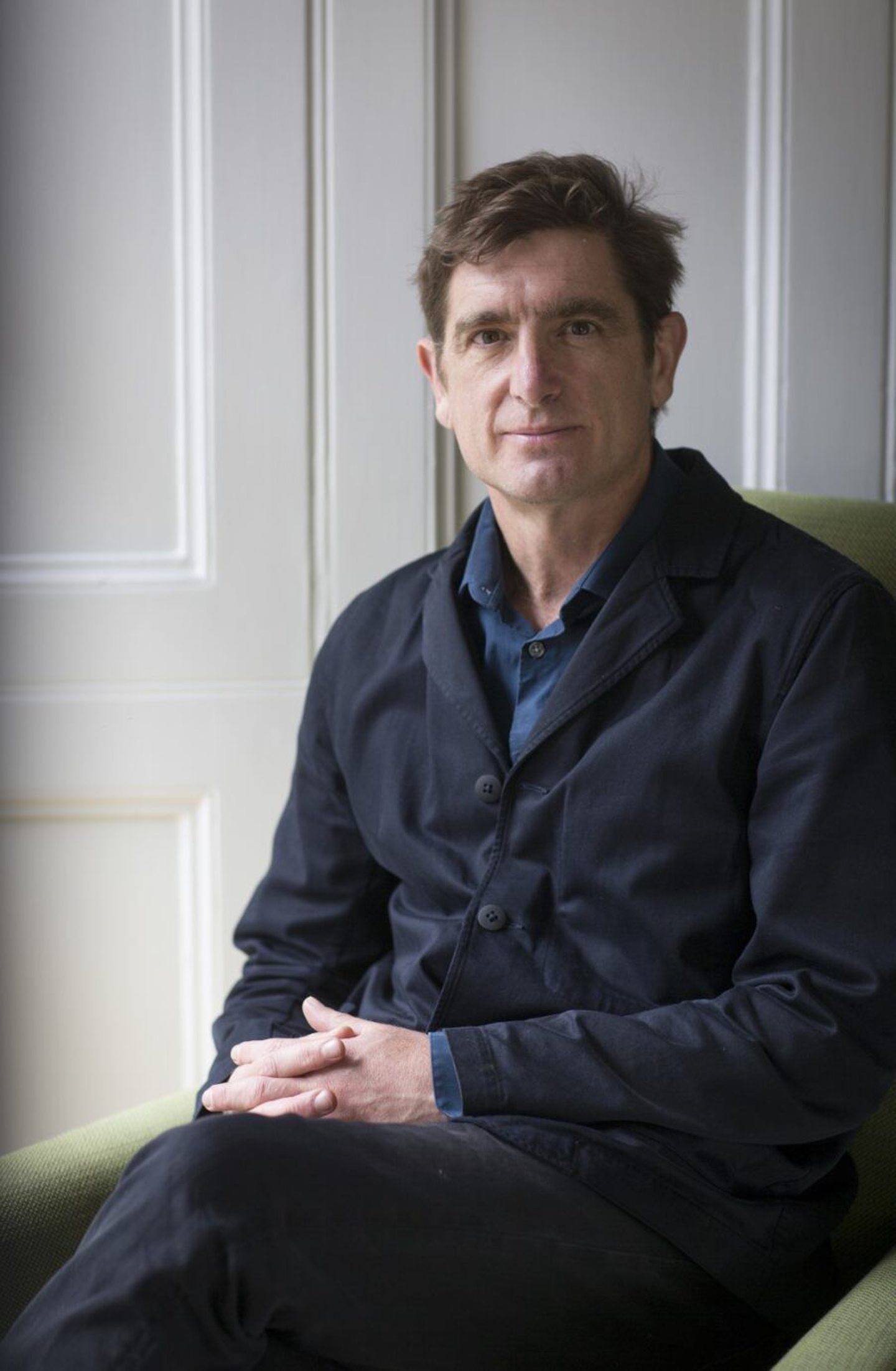Many investigators have grappled with the question of why Fraserburgh-born Dennis Nilsen turned into one of Britain’s most prolific serial killers.
He sought to explain his actions to some who met him in prison, including criminologist, Professor David Wilson, and besieged the latter with hundreds of letters.
Yet, despite the mass murderer’s efforts at courting publicity, his fellow Scot eventually handed over the reams of correspondence to Madame Tussauds’ chamber of horrors in London. His sympathies were with the victims, not the perpetrator.
Indeed, as he told me: “Nilsen had lots to say, but none of it was of any consequence. He was banal, he was tedious, he was dull.”
There was nothing to analyse in the famous cold dead stare. But Wilson and one of his colleagues have now launched a new venture which offers plenty of opportunities to ask the question: Can works of literature inspire humans to take the lives of others?
Plots that inspire murder?
Let’s take one example. The crime was so shocking and premeditated that Mark Chapman could have fled the scene after killing John Lennon in New York in 1980.
But instead, the 25-year-old loitered at the Dakota Building, reading a copy of J. D. Salinger’s The Catcher in the Rye and was arrested by police without incident.
Three hours later, Chapman told his captors: “I’m sure the big part of me is Holden Caulfield, who is the main person in the book. The small part of me must be the Devil.”
His response prompted some people to ask whether the novel had spurred Chapman into his heinous act or was simply a convenient prop for his fantasies of killing other celebrities including Elizabeth Taylor, David Bowie and George C Scott.
And that has intrigued Wilson, who is joining forces with novelist and broadcaster Marcel Theroux, the brother of documentary-maker Louis, for a 33-date British tour, Killer Books, which will venture across the north of Scotland this autumn.
On their travels, commencing in Lerwick in September, the duo will scrutinise some very famous literary works and their links to murder – but Wilson explained that the audience will have a major role in settling the argument.
He said: “Marcel and I came up with a list of 25 books and it will be my job to talk about the murder and the killer, while he will discuss the novel and the characters.
Notorious books
“Another of the books which has gained notoriety is The Turner Diaries [from 1978], written by a white supremacist, William Luther Pierce, who used the pseudonym Andrew Macdonald and devised a plot with the overthrow of the federal government and a racial war between blacks and whites in the United States.
“It was a favourite of Timothy McVeigh [the American domestic terrorist who perpetrated the Oklahoma City bombing in 1995, which killed 168 people] and Anders Breivik [the Norewegian neo-Nazi who killed 69 participants of a Workers’ Youth League (AUF) summer camp, in a mass shooting in 2011].
“Then, there’s Anthony Burgess’ A Clockwork Orange, which, along with its film adaptation by Stanley Kubrick, has been attributed to three murders.
“I’m used to killers explaining that they murdered their victim because they were jealous, out for revenge, or that they had merely killed in ‘five minutes of madness’.
“Discussing this one day with Marcel, we discovered that there were also a surprising number of murderers who had killed because they had been ‘inspired’ to do so by a fictional character or by the plot of a novel.
‘Can the book be blamed?’
“But how does lethal violence emerge from the pages of a novel and seep into real life creating genuine victims? Frankly, we have become obsessed with this question in recent months and we think that when you hear the stories of real murders that Marcel and I want to tell, you too will become fascinated by killer books.
“What we are planning is that he will take one view and I will take the opposite and we’ll explain a particular murder, highlight some footage of the killer – there are clips we will show – and ask the audience for their verdict: Can the book be blamed?
“And I’m sure it will be interesting to find out to their reactions.”
Now 66, the cerebral Wilson has the ability to display empathy without being preachy, and, as somebody who has studied the penal system in Britain and elsewhere, he appreciates that rehabilitation is a vital part of the process for offenders.
Yet there are some cases where that is an impossibility, not least because of the scale of somebody’s crimes and their studied refusal to take any responsibility for them.
Few people have embodied these traits more than Nilsen, who seemed to expect Wilson to understand why he had murdered at least 12 to 15 young men and boys between 1978 and 1983 in Muswell Hill in London.
What did David Wilson think about Dennis Nilsen?
Their paths first crossed when the notorious prisoner was transferred to HMP Wormwood Scrubs, where Wilson was working as an assistant governor.
But though there have been books, TV dramas – the most recent starred David Tennant – and endless speculation about Nilsen’s motivations, the emphasis has focused on him.
And that’s why Wilson spoke passionately about why we shouldn’t grant these mercifully rare people any shred of “glamour” when their deeds are encrusted in grime.
He said: “I think many people are fascinated by mystery and it is sometimes assumed that people who are evil are a mystery, but I don’t think that.
“It’s a Hollywood version of evil, which some see as being glamorous, but the reality in Nilsen’s case could hardly be more different.
“He wrote all these letters to me from his cell, but I didn’t want them. I gave them all away to the museum, where Nilsen is in with the likes of the Kray twins, Ruth Ellis (the last woman to be hanged in Britain) and Jack the Ripper.
Dennis Nilsen wanted to talk ‘endlessly’
“Examining what [German historian and philosopher] Hannah Arendt described as the banality of evil is a well-trodden path, and there is still this sense that we expect evil to be powerful: ‘The Devil has all the best tunes’ and all that stuff.
“But it was the opposite of that with Nilsen and trying to have ‘conversations’ with him was awful. He was just so tedious.
“We tend to take it for granted that a conversation is something that happens between two people, but with him, it was only one person doing all the talking.
“He wanted to talk endlessly and….well, he didn’t want to listen, so there was only one way that could finish. And it did finish.”
Tour will visit Orkney and Shetland
The words reveal that while David Wilson has appeared on myriad different TV programmes on several different channels, he can never be accused of reducing murder to a few tawdry, tabloid phrases. And it promises to be the same with the new tour, as he visits the likes of Orkney and Shetland for the first time.
He said: “As somebody who lives in England these days, I always use any excuse to get home and I’m going to places where I’ve never spoken before and especially with Marcel, who has written seven novels and can bring things to the table I can’t.”
The chances are it will be a deft dive into the murky world of crime and punishment, populated by Jekyll-and-Hyde characters.
Tickets are now on sale from professordavidwilson.co.uk
Five questions for David Wilson
- What book are you reading? The Secret Agent by Joseph Conrad, which has been linked to the Unabomber [American terrorist Theodore J Kaczynski].
- Who’s your hero/heroine? Aneurin Bevan [the Labour politician who was pivotal in creating the National Health Service in 1948].
- Do you speak any foreign languages? I speak passable French.
- What’s your favourite music/band? I love jazz and Chet Baker. “I Fall in Love Too Easily…”
- What’s your most treasured possession? The watch I received from my father.
